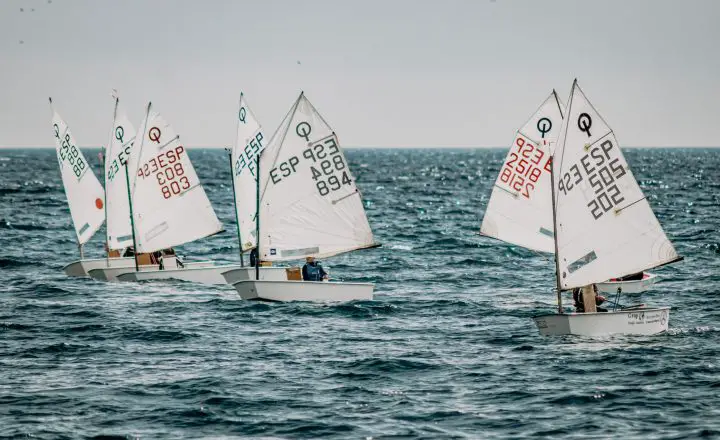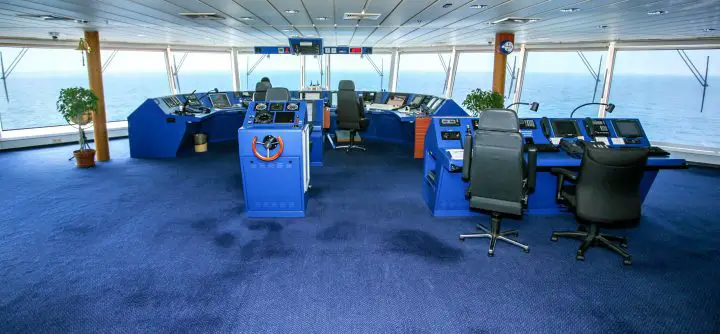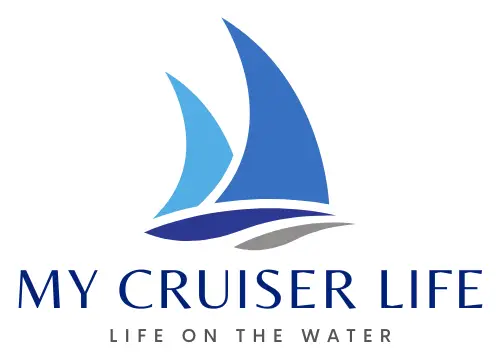Boating laws vary from state to state, but generally, most places require boaters to have some amount of education. So if you’re wondering do you need a captains license for personal boat, the answer is generally no. But, do you need a license to drive a boat? The answer to that depends on your state laws and precisely what is meant by “license.” Many times, a boater education course is all that is required.
Table of Contents
- Do I Need a Captains License for my Personal Boat?
- Types of Boats and Boating Safety Course Requirements
- Do I Need a License to Drive a Boat in My State?
- Boating Safety Education Requirements for Each US State
- Do You Need a Captain’s License for Personal Boat Trips?

Do I Need a Captains License for my Personal Boat?
For decades, recreational boaters have not needed a boating license. However, things are gradually changing, primarily due to many Coast Guard studies that have linked a lack of boater education to a vast majority of accidents that occur on the water. So, can you drive a boat without a license? In many cases, you can, but should you? Probably not.
Insurance companies are also leading in the push, and many require you to find formal boater education and licensing before they will underwrite your vessel. In many cases, meeting the state law requirements is insufficient. For example, if you are purchasing (and insuring) a $300,000 vessel but have no boating experience, the company will want proof that you know how to do it safely. On the other hand, if you’re insuring a $5,000 trailer sailor, they might not care quite as much.
So the answer depends on multiple factors when you’re driving your personal vessel. For example, you do not need a proper Coast Guard captain’s license for a personal boat, but your state might require a boating safety education course, and your insurance company might further require you to get some boat operators training.
You might wonder what size boat requires a license. It only makes sense, after all, that at some point, a boat becomes so large that you need a license. Under Coast Guard and state rules, size generally does not matter. But while you legally might be able to drive any size boat for personal use, your insurance company will undoubtedly dictate what sort of training and how much of it you can have before you’re allowed to take the helm on your own.
State Boating Licenses vs Captain Licenses
Many states pass laws requiring all boaters or specific groups of boaters to pass safe boating courses. In general, these are online or in-person courses that cover the book knowledge you need to know to boat safely. There are no requirements for hands-on training on the water.
These are introductory courses and very minimum requirements for learning how to operate a boat. In addition to web courses like those offered by the states and BoatUS, the US Power Squadron and US Coast Guard Auxiliary offer safe boating courses.
For hands-on training, most people take the helm with the help of a friend, or perhaps the broker that sells them the boat might give them some pointers. But there is no requirement to go out on the water with an experienced instructor who will teach you the skills you need to stay safe.
Additionally, these state requirements only apply to recreational boaters. In any instance where the boat operator is accepting money for the trip, that person must hold a US Coast Guard-issued captain’s license. The proper name of the captain’s license is a Merchant Mariner Credential (MMC).
There are two grades of captain’s license issued by the Coast Guard. For small boat charters with six passengers or less, the operator may hold what is commonly called a six-pack license. This is the common name for the OUPV, or Operator of Uninspected Passenger Vessels.
If the vessel is inspected and can carry more than six passengers, the operator must have a Master grade MMC. Master’s licenses are divided by the tonnage of the vessel. Most small vessels are 50 tons or less.
You only need a Coast Guard license if you are operating commercially. For example, if you take money to charter your boat and offer your services as a captain, or you are paid to move a boat from one place to another.
Captains License Requirements
If you are interested in obtaining a captain’s license, you must prove enough sea time to qualify. You can build up your experience and sea time by documenting time spent on your boat or using time you have worked on other vessels as a mate or deckhand.
Each grade of license from the Coast Guard has a different amount of sea time required. In addition to on-the-water experience, you’ll need to pass a medical exam and a set of written exams. The exams test your knowledge of everything from basic boat handling to safety and navigation.

Types of Boats and Boating Safety Course Requirements
Interestingly, what size boat requires a captains’s license isn’t a factor in the Coast Guard world. If you are operating the vessel for your private recreational use, you can operate any size vessel without a captain’s license. But if it is for commercial purposes, any size vessel—no matter how small—would require you to have one.
But there are some kinds of boats that states pay extra attention to, generally because operating these boats is trickier or more dangerous. One such vessel is the PWC (personal watercraft), more commonly called a jet-ski or wave runner.
PWCs are the most heavily regulated type of boat on the water simply because they are the most prevalent–and the most prone to issues. So if you’re thinking about buying a jet ski, make sure you look up your state’s rules to find out, do you have to have a license to drive a boat like that?
Many people also wonder, do you need a license to drive a pontoon boat? In this case, pontoons fall into the general motor or powerboat category. Generally, states only require a safe boating course and often only for specific age groups.
Powerboats are generally regulated based on the horsepower of the motor. The most common line is ten horsepower, where you don’t need a license or training for anything less. But some states draw the line at 15, others at 25, and some require a course–no matter the engine’s size.
Sailing License Requirements to Operate a Boat
At this time, state boating education requirements do not separate powerboats from sailboats during their safe boating course. In general, the content of a regular safe boating course covers appropriate topics for both. The material covers basic boat systems, navigation, right of way rules, and safety fundamentals.
Once you’ve completed your state-required boating education courses, it is pretty easy to add a bit of sailing knowledge. Two major sailing organizations offer courses through local sailing schools in the US. They are US Sailing and ASA (American Sailing Association).
US Sailing tends to be geared towards racing, while ASA is favored by cruisers and those looking to charter boats. Either way, the training is optional but very beneficial. All of the courses within these programs include on-the-water training and bookwork.
Do I Need a License to Drive a Boat in My State?
In most instances, safe boating requirements are issued by state authorities like the Department of Natural Resources or similar. These laws are usually written so that they accept similarly accredited or national courses like those from the Power Squadron or CG Auxiliary.
In every instance, the course you take is not necessarily a license. Instead, it is a safety course, much like the courses they make you take to get your driving learner’s permit. Much of it is done online now, but a handful of states require you to sit for an in-person proctored exam.
When looking around for an online course, ensure it is accredited by the NASBLA (National Association of State Boating Law Administrators) and your state’s licensing agency. Don’t assume that all online courses will count toward meeting the requirements set by your state or your insurance provider.
In some cases, particularly for younger operators, just passing the course may be insufficient. Many states on the list require that you submit proof of your completion to the state and receive an official certification card that you can carry with you while boating.
Another common requirement for minors wishing to operate vessels is that they be supervised. Again, each state’s requirements are slightly different. Still, generally, there is a minimum age to operate a vessel and then an age at which you can legally operate one if you have either passed a course or are under the supervision of someone older.
Finally, states differ in how you can prove you have passed a course. Some states require you to have a physical license or an official state-issued certificate to prove you’ve passed the course. In other places, just having a simple certificate of completion from a course is good enough.
Do You Need a Driver’s License to Drive a Boat?
A handful of states have an identification rule on the books. In other words, you must have in your possession a government-issued ID card at all times when you’re operating your vessel. Since states don’t issue ID cards for boaters, this usually means your driver’s license.
Boating Safety Education Requirements for Each US State
What do you need to drive a boat in your state? Here’s a list of the requirements in each state to get you started. Remember, a state’s legal minimum may or may not be sufficient for your insurance company.
There are only seven states that have no requirement to take a safe boating course. So unless you live in one of these places, you are required to take a safe boating course in most circumstances.
- Arkansas
- Arizona
- Alaska
- Idaho
- Maine
- South Dakota
- Wyoming
If you’re looking for a free online safe boating course that will work in your state, an excellent place to start is with the BoatUS Foundation.

Alabama Boating Education Required
Everyone over 12 years old operating a boat in Alabama must have taken a safe boating course. For those 12 to 14 years old, you can only operate a boat if you have a learner’s permit and someone over 21 is with you. Children under 12 cannot operate vessels in Alabama.
Alaska Boating Education Required
Alaska has no formal education requirements but recommends that boaters take a nationally-recognized safe boater course anyway.
Arizona Boating Education Required
Arizona has no formal education requirements but recommends that boaters take a nationally-recognized safe boater course anyway.
Arkansas Boating Education Required
Everyone born after January 1, 1986, must pass a state-approved safe boater course. They have a convenient online option or in-person classes.
California Boating Education Required
Boaters must have a California Boater Card, which costs $10 after passing an approved boating safety exam. Currently, this rule only applies to those under 20 years old. But in 2025, everyone will be required to get one.
Colorado Boating Education Required
No education is required for boat operators over 16. However, 14 and 15-year-olds need to pass a safe boating course first.
Connecticut Boating Education Required
Connecticut requires all boat owners to pass a safe boating course or those individuals who plan to go boating more than 60 days per year.
Delaware Boating Education Required
Anyone born after January 1, 1978, needs to take a safe boating course in Delaware. The minimum age to boat in the state is 14, but an adult must accompany 14 and 15-year-olds.
Florida Boating Education Required
Anyone born after January 1, 1988, must pass a boating course approved by the Florida DEP and the NASBLA to operate any vessel with more than ten horsepower.
Georgia Boating Education Required
Boaters under 12 years old cannot operate PWCs or boats longer than 16 feet on their own. If they operate a vessel less than 16 feet, it must have less than 30 horsepower.
Boaters between 12 and 15 years old must have a state-issued license to go out independently. Or, they can operate a PWC or vessel less than 16 feet long if they have passed a DNR-approved course and are with an adult.
Boaters 16 and over are good to go so long as they have a government-issued ID on them (like a driver’s license).
Hawaii Boating Education Required
Any operator of a boat with more than ten horsepower must have passed a NASBLA-approved boating course. In addition, all PWC operators must be 15 or older and have passed two PWC-specific courses and the safe boating course.
Idaho Boating Education Required
Boating courses are only required for those convicted of operating under the influence. However, the state also requires PWC operators to have some education, often provided by the PWC rental company.
Illinois Boating Education Required
Those between 12 and 18 must have a boating education certificate to go out on their own. Anyone born after January 1, 1998, needs a Illinois Boating Safety Certificate. Kids between 10 and 11 years old can only drive boats with more than ten horsepower if an adult supervises them—and the adult must have a valid Safety Certificate.
Indiana Boating Education Required
Fifteen-year-olds can operate a vessel so long as they have passed a state-approved boating course and have the ID card with them. Everyone in Indiana operating a vessel should carry a government-issued ID with them.
Iowa Boating Education Required
If you are between 12 and 17 and want to operate a vessel with more than ten horsepower or a PWC, you must have a certificate of completion from a boating safety course.
Kansas Boating Education Required
Anyone born after January 1, 1989, must pass an approved boating safety course that is NASBLA-approved. The minimum age to operate a boat in Kansas is 12, and 12 to 20-year-olds who want to operate a vessel unsupervised can do so as long as they pass an approved safety course.
Kentucky Boating Education Required
The minimum age to operate a boat is 12. If a 12 to 17-year-old wants to operate a vessel with more than ten horsepower, they can do so as long as they pass a NASBLA-approved course.
Louisiana Boating Education Required
Any boat operator under 16 years old must take and pass a course. Additionally, any boaters born after January 1, 1984, need to have passed a course and have proof of completion with them at all times.
Maine Boating Education Required
The minimum age to operate a boat with more than ten horsepower is 12—unless a licensed person supervises them who is over 16. In addition, no one under 16 may operate a PWC—and 16 or 17-year-olds on a PWC must have completed a safety course. There are no requirements for education for people over 18 in Maine.
Maryland Boating Education Required
Anyone born after July 1, 1972, must have a valid certificate of completion for a boating safety course. The minimum age to operate a PWC in Maryland is 16.
Massachusetts
Individuals between 12 and 16 who wish to operate a vessel unsupervised may do so so long as they pass a boating safety course. The minimum age to operate a PWC is 16—and 16 and 17-year-olds must pass a safety course.
Michigan Boating Education Required
Only people under 21 need to have passed a safe boating course.
Under 12 years old — May operate a boat with less than six horsepower unsupervised, or a boat with 6 to 35 horsepower with supervision
12 to 15 years old — May operate a boat with less than six horsepower unsupervised or a boat with more than six horsepower if they have passed a safe boating course.
Minnesota Boating Education Required
Anyone between the ages of 12 and 17 must pass a safe boating course to operate a vessel with more than 25 horsepower. PWC drivers between the ages of 14 and 17 must have a Watercraft Operator’s permit. A 13-year-old may operate a PWC with a permit and under supervision.
Mississippi Boating Education Required
Anyone born after June 30, 1980, must complete a state-approved safe boating course.
Missouri Boating Education Required
People born after January 1, 1984, must pass a state-approved course and carry a Missouri Boating Safety certification card.
Montana Boating Education Required
To operate any vessel over ten horsepower, 13 and 14-year-olds must pass a course or be under the supervision of an adult.
Nebraska Boating Education Required
Everyone born after January 1, 1986, must pass a boating safety course. For teenagers between 14 and 18 years old, you must be accompanied by a certificated operator or taking a course yourself.
Nevada Boating Education Required
Anyone born after January 1, 1983, must pass a Nevada-approved course if the boat has a motor of more than 15 horsepower.
New Hampshire Boating Education Required
Anyone operating a boat with more than 25 horsepower in New Hampshire must have passed a course. The minimum age to operate a vessel in the state is 16. New Hampshire accepts most national courses and USCG commercial licenses in place of the state course.
New Jersey Boating Education Required
Every power vessel operator must have and carry a license. You must pass a course approved by the New Jersey State Police to get the license. The DMV then issues the actual license.
New Mexico Boating Education Required
Anyone born after January 1, 1989, must pass a state-approved course. In addition, kids under 13 must have a Boater Education Card and be under the supervision of an adult.
New York Boating Education Required
If you were born after May 1, 1996, you need to pass a course to operate a boat in New York. The course is only available to those ten and over, and kids between 10 and 14 must boat with supervision. To drive a PWC, you must be at least 14.
North Carolina Boating Education
Anyone born after January 1, 1988, must pass a NASBLA-approved course if their boat has more than ten horsepower. Teens between the ages of 14 and 16 on PWCs must have a license if they are unsupervised.
North Dakota Boating Education
Kids under the age of 12 can only operate a PWC or a boat with more than ten horsepower if they are under the supervision of someone 18 or over. If they are between 12 to 15, they can either be under supervision or pass an approved course.
Ohio Boating Education Required
Anyone born after January 1, 1982, must take a course and get a license to operate a boat with more than ten horsepower. Children under 12 can never operate a PWC, but those between 12 and 15 may if they have taken a course and are under supervision. Once over 16, they no longer need supervision but still must have passed a course.
Oklahoma Boating Education Required
The minimum age to operate a vessel is 12, and kids between 12 and 16 must have passed a safe boating course.
Oregon Boating Education Required
Anyone over the age of 12 who wishes to drive a boat with more than ten horsepower must have passed a safe boating course.
Pennsylvania Boating Education Required
For boats with more than 25 horsepower, anyone born after January 1, 1982, must have taken a course. Anyone operating a PWC must have taken a course and received a license. No one under 11 years old can operate a PWC or motorboat.
Rhode Island Boating Education
All PWC operators must take a class and get a license. For motorboats with ten or more horsepower, anyone born after January 1, 1986, must have taken a class.
South Carolina Boating Education
Anyone under 16 who wants to operate a boat with more than 15 horsepower must take a course.
South Dakota Boating Education
No one under the age of 12 can operate a powerboat with more than six horsepower—unless they have the supervision of someone over 18. For PWCs, the minimum age is 14.
Tennessee Boating Education Required
If you were born after January 1, 1989, you must take an exam proctored by the Tennessee Boater Education Certificate officials. If you are under 12, you must be supervised by an adult. People under the age of 16 cannot rent a PWC in Tennessee.
Texas Boating Education Required
Anyone born after September 1, 1993, must pass a safe boater class and receive a boat license.
Utah Boating Education Required
All operators under the age of 16 must be under the supervision of an adult. For those 16 or 17-year-olds who want to go out alone, they may do so so long as they have passed an education course.
Vermont Boating Education Required
Anyone born after January 1, 1974, must take a safe boating course. The minimum age to take the course is ten.
Virginia Boating Education Required
Any operator of a motorboat with more than ten horsepower must have taken a safety course. In addition, you must be at least 14 to drive a PWC, and all PWC drivers must have passed a course.
Washington Boating Education Required
If your boat has more than 15 horsepower, you must have taken a boat class. The minimum age to operate a boat in Washington State is 12.
West Virginia Boating Education
If you were born after January 1, 1987, you must have completed a course before operating in West Virginia. In addition, if you are between 12 and 14 years old, you must complete a course and be supervised by an adult.
Wisconsin Boating Education Required
Anyone born after January 1, 1989, must take a boating safety course.
Wyoming Boating Education Required
While Wyoming does not have a course requirement, they do have one of the strictest age limits. No one under 16 is allowed to operate a motorized vessel of PWC unless someone over 18 is present.
Do You Need a Captain’s License for Personal Boat Trips?
As you can see, the answer is pretty complex! The older you are, the easier it is as states phase in new laws and rules governing boat operators. But regardless of what you need to operate on state waters, your insurance company may have its own set of rules for you.
So if you’re considering the purchase of a new vessel, check with an experienced and qualified marine insurance broker to get some idea of what education requirements will help you get coverage. It may even save you money in the long run.
